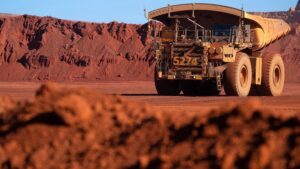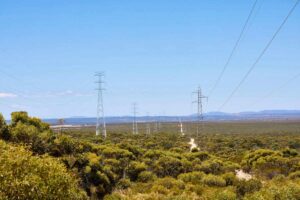Australian investors looking to steer clear of fossil fuel companies will now have an easier option, with the launch this week of a Fossil Free Index, said to be the first of its kind in Australia.
The index, a collaborative effort from Thomson Reuters and Future Super – Australia’s first fossil-fuel free super fund – was launched on Tuesday alongside another first of a kind, the Thomson Reuters/Future Super Australia Sustainable Leaders Index.
The new indices aim to give both institutional and retail investors improved access and investment transparency to ASX-listed companies considered to be fossil-fuel free and ahead of the pack in environmental, social and governance (ESG) practices.
The Australia Sustainable Leaders Index – which charts the 50 leading medium to large sustainable ASX-listed companies – will also be the first index in Australia to incorporate strict negative screening on direct and indirect fossil fuels, as well as traditional ESG scoring.
Both indices are based on the Thomson Reuters Australia Index, a market capitalisation-weighted stock of approximately 300 companies listed on the ASX.
Companies are screened according to a process developed by Future Super, which includes Thomson Reuters ESG services as a primary data source, amongst others.
Simon Sheikh – the managing director of Future Super, which he founded exactly one year ago – says he expects demand for fossil fuel free investment to increase in the next 12 months.
“While a consistent stream of research has been released pointing to the poor recent performance of fossil fuel exposed companies, our fossil fuel free indices will provide potential investors with a day by day analysis of the performance of this investment strategy,” he said in a statement on Tuesday.
Indeed, the rationale for fossil fuel divestment is rapidly shifting from being ethically sound, to economically sound.
Or, as John Quiggin put it in 2014, “the cold hard numbers of putting money into fossil fuels don’t look good.”
This is largely due to the fact that scientists tell us – and major economic and industry groups, including the International Energy Agency, agree – that to avoid dangerous global warming, we need to leave the majority of the world’s untapped fossil fuel resources in the ground. Meanwhile, above the ground, we need stop burning the fossil fuels we have already dug up, starting immediately.

This raises the potential for a whole lot of stranded fossil fuel assets, which is why we are seeing more and more institutional investors, including leading global universities and some of the world’s biggest superannuation funds reducing their exposure to coal and oil-connected stocks.
As Future Super notes in a paper released for the launch, a recent report from The Economist Intelligence Unit found that the effects of climate change may result in asset managers losing $5.7 trillion, an amount equal to the total value of all the worlds listed oil and gas companies.
For every additional degree of warming, trillions of dollars may be stripped from the value of global asset manager portfolios over the coming decades, it says.







